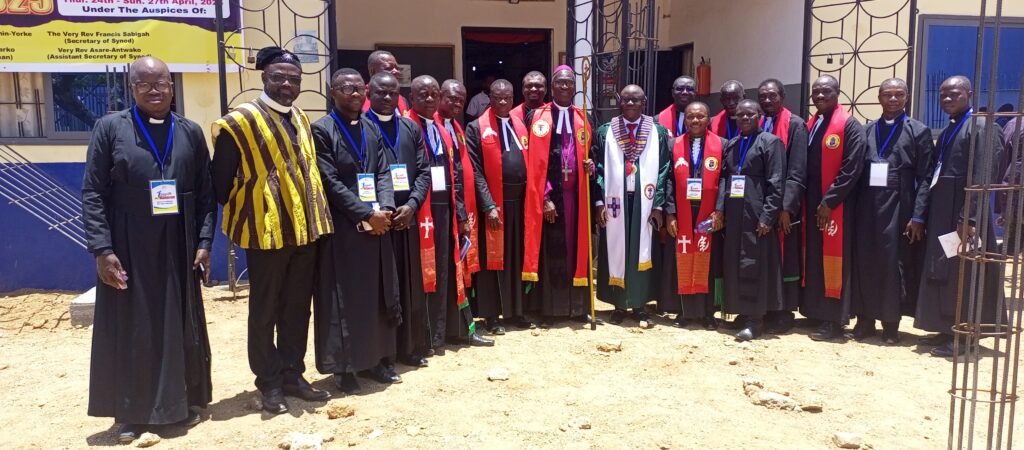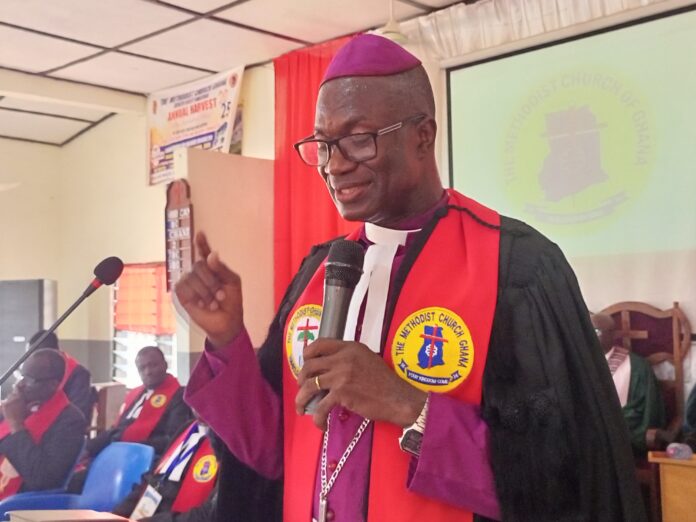The Methodist Church in northern Ghana is facing significant infrastructural challenges as it works to establish a stronger presence in the region, according to Rt. Rev. Isaac Justice Arhin-Yorke, Bishop of the Wa-Bolgatanga Diocese, during the Diocese’s maiden Synod held this week.
The Synod, which brought together top leadership from Methodist churches across the entire Diocese, served as a crucial platform for deliberating on the welfare of the Methodist church and addressing the pressing issues facing the church in the Diocese.
In an impassioned address to church leaders and congregants during this top leadership engagement from Methodist churches across the Diocese, Rt. Rev. Arhin-Yorke highlighted that the majority of Methodist churches in the Diocese currently conduct worship services outdoors, under trees, due to a severe lack of permanent structures.
The infrastructural limitations were presented as one of several key challenges facing the Diocese, though they represent a particularly visible and pressing concern.
“These ‘tree churches’ or ‘open-air churches,’ as they are commonly known, represent the reality for most of our Societies in the Wa-Bolgatanga Diocese,” the Bishop stated.
“While we embrace humility in our worship, these conditions create practical challenges that hinder our spiritual growth and community engagement,” he added.
Rt. Rev. Arhin-Yorke explained that these outdoor worship spaces are particularly vulnerable to weather disruptions, which directly impacts church attendance patterns and the spiritual development of church members. During the rainy season, services are frequently canceled or cut short, while the intense heat during dry periods can make extended worship uncomfortable for congregants.

“In the North, religious buildings symbolize institutional presence and permanence,” Rt. Rev. Arhin-Yorke noted. “Worshipping under trees affects the community’s perception of our commitment and capabilities.”
This perception disadvantage is especially significant in the predominantly Muslim areas that make up much of the Wa-Bolgatanga Diocese, where mosque structures stand as visible, permanent fixtures in communities. The contrast between established mosques and temporary worship spaces creates challenges for the Methodist Church’s outreach and growth efforts.
The Diocese also faces a shortage of manses (residences for ministers) and lacks adequate facilities for effective community engagement programs that could strengthen ties with local populations.
Addressing what is being done to tackle these challenges, Rt. Rev. Arhin-Yorke stated, “The infrastructure needs have to be addressed. The starting point has to do with encouraging our Churches that worship under trees to make a conscious self-help effort to start building Churches and manses while we seek external aid for them.”
Church leaders have indicated that addressing these infrastructural needs will be a priority in the Diocese’s strategic planning moving forward, with hopes of establishing permanent worship spaces that can better serve congregants regardless of weather conditions and demonstrate the Church’s long-term commitment to communities across the region.
The Wa-Bolgatanga Diocesan Synod, which represents the highest decision-making gathering of church leaders from across the Diocese, continued through the weekend, with delegates expected to approve action plans to address the challenges presented by the Bishop.




